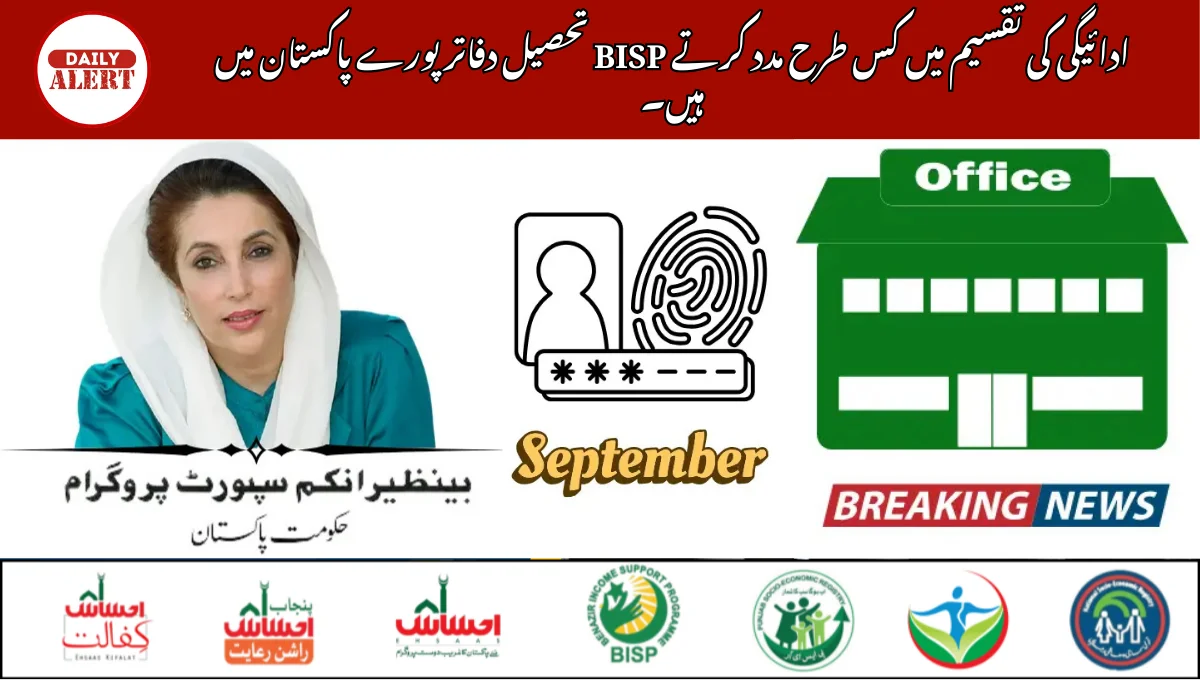The Benazir Income Support Programme (BISP), Pakistan’s flagship social welfare initiative, has been playing a central role in helping millions of low-income families through financial assistance. With the growing number of beneficiaries across the country, the government has strengthened the role of tehsil offices to ensure transparency, accessibility, and smooth distribution of payments. These local offices have become the backbone of BISP’s operations, acting as direct service centers for people who depend on the program.
Expanding access through tehsil offices
One of the biggest challenges in distributing welfare funds in a country as vast and diverse as Pakistan is ensuring that beneficiaries can easily access their payments. Tehsil offices address this gap by providing physical service points in almost every district. Families eligible for BISP payments no longer need to travel long distances to provincial or federal offices. Instead, they can verify their status, resolve complaints, and collect their entitlements from nearby tehsil centers.
This approach has reduced administrative delays and provided a more transparent environment for handling public funds. According to BISP officials, tehsil offices have also allowed the program to keep closer contact with beneficiaries, especially women, who make up the majority of registered recipients.
Role in verification and complaint handling
Another key function of tehsil offices is verifying beneficiary information. Many households face challenges in updating records, especially regarding identity cards or changes in family circumstances. Local BISP offices ensure that data remains accurate by working with NADRA and other institutions. This prevents duplication, fraud, and misuse of welfare funds.
In addition, tehsil offices handle a large number of complaints from beneficiaries. Issues such as delayed payments, technical errors in the banking system, or biometric verification problems are addressed at the local level. This has eased the pressure on central offices and given people a direct and responsive way to resolve their concerns.
Improving transparency in BISP distribution
Over the years, concerns about leakages and inefficiencies in welfare distribution have been raised by civil society and the media. The introduction of tehsil offices has helped improve monitoring and oversight. Beneficiaries can now directly report any irregularities, ensuring that funds reach the intended recipients without middlemen or corruption.
Furthermore, these offices coordinate with banks and payment centers to streamline the cash distribution process. With digital records and biometric systems in place, the risk of fraudulent withdrawals has been minimized.
A step toward inclusive development
The strengthening of tehsil offices under the BISP framework reflects the government’s effort to bring social protection closer to people. By decentralizing services, the program not only supports financial assistance but also promotes inclusivity. For many women in rural areas, tehsil offices are their first point of official interaction with state welfare services.
Future outlook
As Pakistan continues to expand social protection measures, the role of tehsil offices is likely to grow. The government has already hinted at integrating additional welfare schemes through the same infrastructure, which could include education stipends and health support. By building on this local network, BISP aims to ensure that no family is left behind in accessing its rightful share of assistance.
In the coming years, a stronger digital integration between tehsil offices, NADRA, and the banking system is expected to make the process even smoother. This would further strengthen transparency and help the program adapt to the needs of a growing beneficiary base.
Also Read More: BISP Web Portal 8171 Online Check – Receive Your Payment Directly in Account

